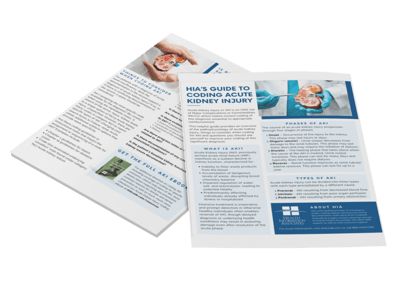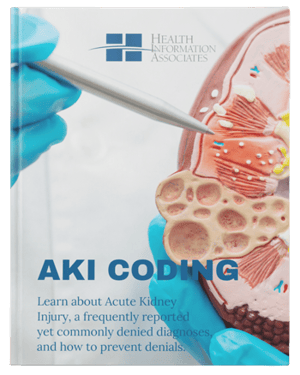Acute Kidney Injury
This eBook is an invaluable tool for coders, offering insights into Acute Kidney Injury (AKI). It covers the basics of AKI, its causes, and the ICD-10-CM diagnostic process. The guide also highlights clinical signs of AKI, addresses the need for thorough investigation before diagnosis, and provides strategies to avoid claim denials. A must-read for coders seeking to improve their understanding and coding practices for AKI.
What's included:
✓ What is Acute Kidney Injury?✓ Acute Kidney Injury Specificity Coding and Sequencing
✓ Clinical Indicators for Acute Kidney Injury
✓ Is Documentation Present to Report Acute Kidney Injury?
✓ Reasons for Acute Kidney Injury Denials and Prevention
Download our Free Guide to AKI Coding
This helpful guide provides an overview of the pathophysiology of AKI, things to consider when coding for AKI and questions you should ask yourself to improve your coding of this significant diagnosis.


Chronic Kidney Disease Coding Course
HIAlearn offers over 200 medical coding courses, catering to both new and seasoned coders among its 1,600+ user community, spanning complex procedures to broad coding concepts. In the Chronic Kidney Disease Coding Course, coders will learn how to correctly assign diagnosis codes for Chronic Kidney Disease (CKD) and renal failure.
Recent Blog Posts
Debridement is the medical removal of dead, damaged, or infected tissue to improve the healing of remaining healthy tissue. Debridement may be excisional or non-excisiona...
Coding for treatment of cerebral aneurysms may seem a little intimidating because the procedure is performed on the arteries of the brain, but understanding what an aneur...
With the implementation of ICD-10-CM came more codes for reporting the long-term use of drugs. There is now a code to report long-term use (LTU) of aromatase inhibitors.




